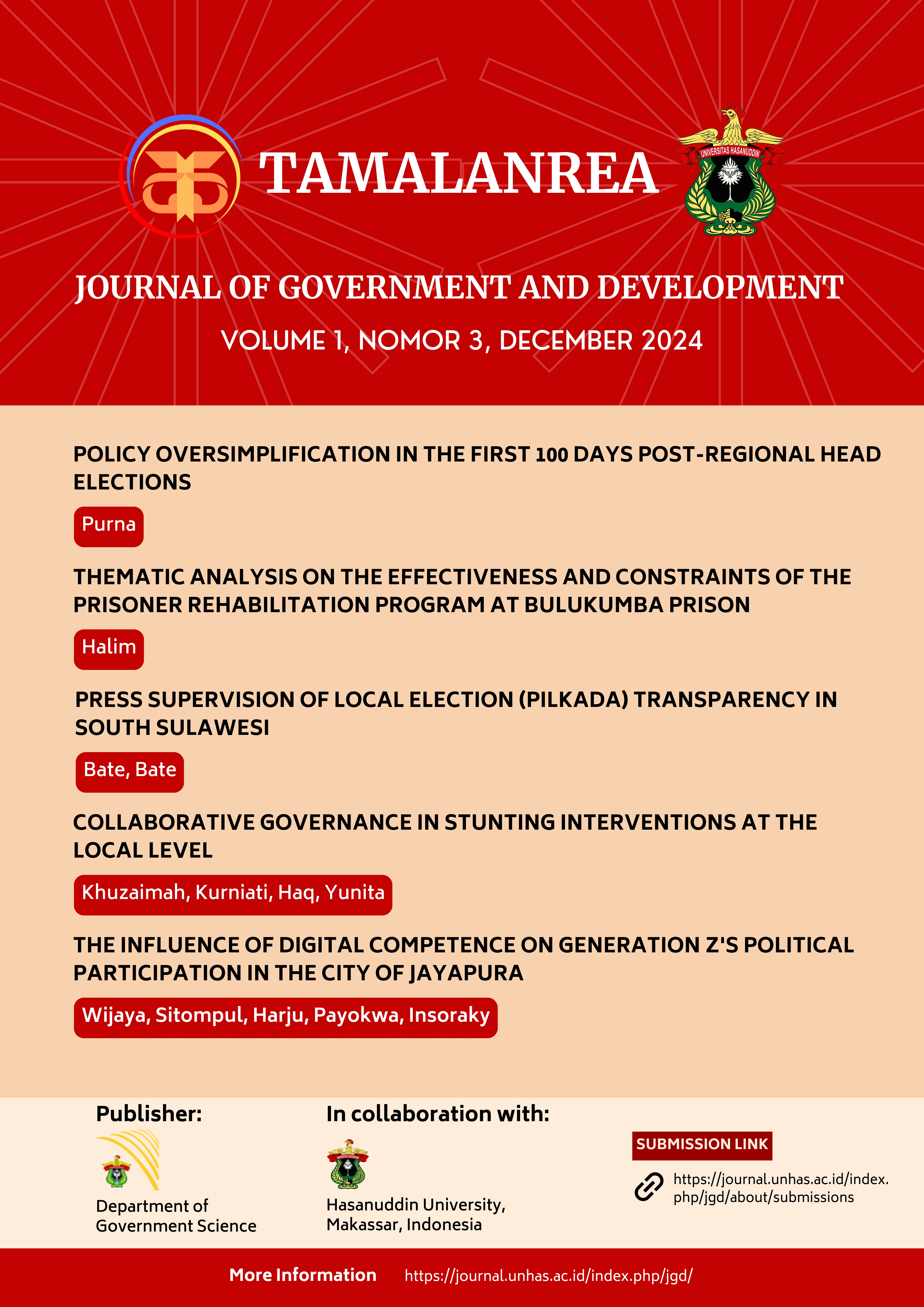Policy oversimplification in the first 100 days post-regional head elections
DOI:
https://doi.org/10.69816/jgd.v1i3.42323Keywords:
First 100 Days, Policy Oversimplification, Policy Evaluation, Election, Local Election, IndonesiaAbstract
The 100-day work period concept is often used to evaluate the initial performance of elected officials, including in Indonesia. While useful as an early indicator, this concept tends to oversimplify the complex policymaking process into campaign promises that must be fulfilled in a short timeframe. This study highlights the phenomenon of oversimplification during this period, where policies often focus on visible short-term outcomes at the expense of sustainability and long-term impact. Using semi-structured interviews, policy document analysis, and data triangulation, the research identifies that policy evaluations during the 100-day period frequently emphasize administrative and statistical achievements without considering deeper social changes. The study recommends a more sustainable approach to policy formulation and evidence-based evaluation involving various stakeholders. The findings suggest that policy success should be measured based on its ability to foster inclusive change, reduce social inequality, and improve community quality of life in the long term. Further research is needed to develop ongoing evaluation mechanisms to assess the impact of policies beyond the 100-day work period.
Downloads
Published
How to Cite
Issue
Section
License
Copyright (c) 2024 Author

This work is licensed under a Creative Commons Attribution-NonCommercial-NoDerivatives 4.0 International License.















